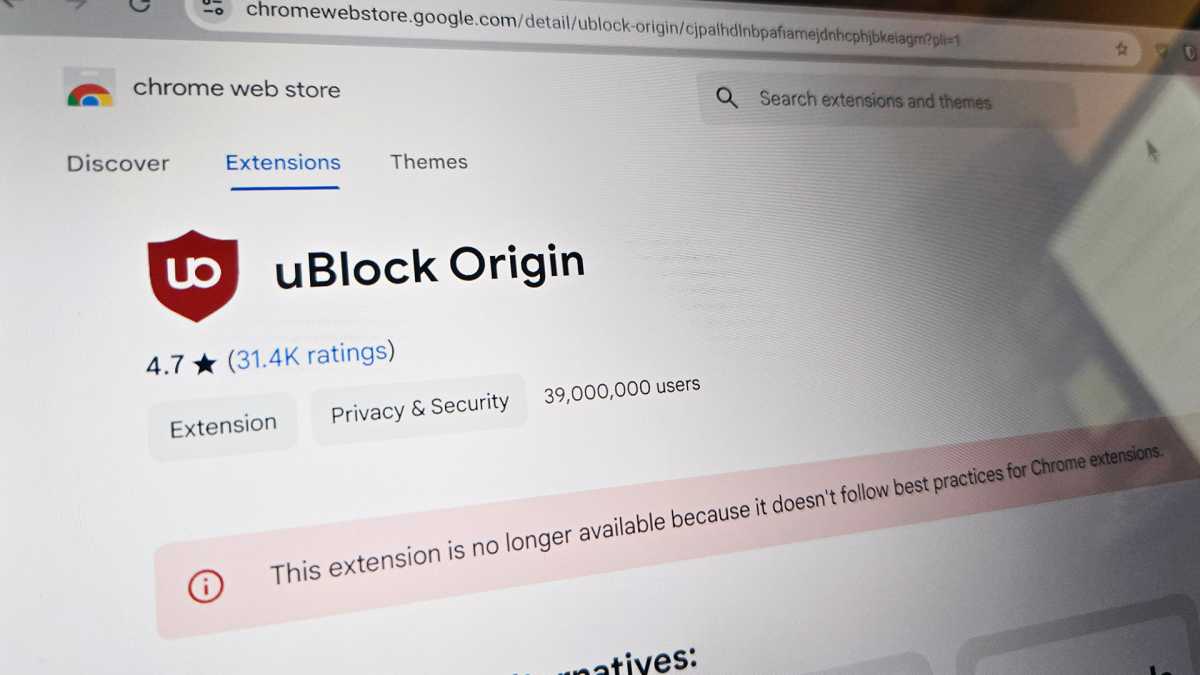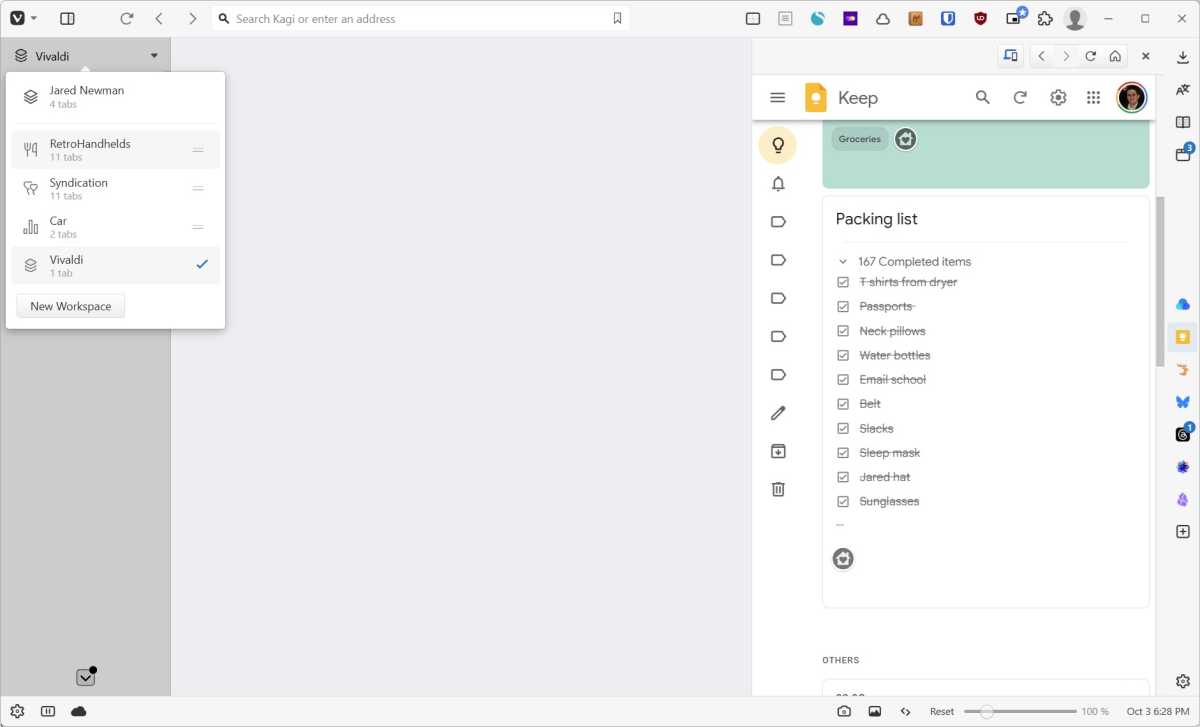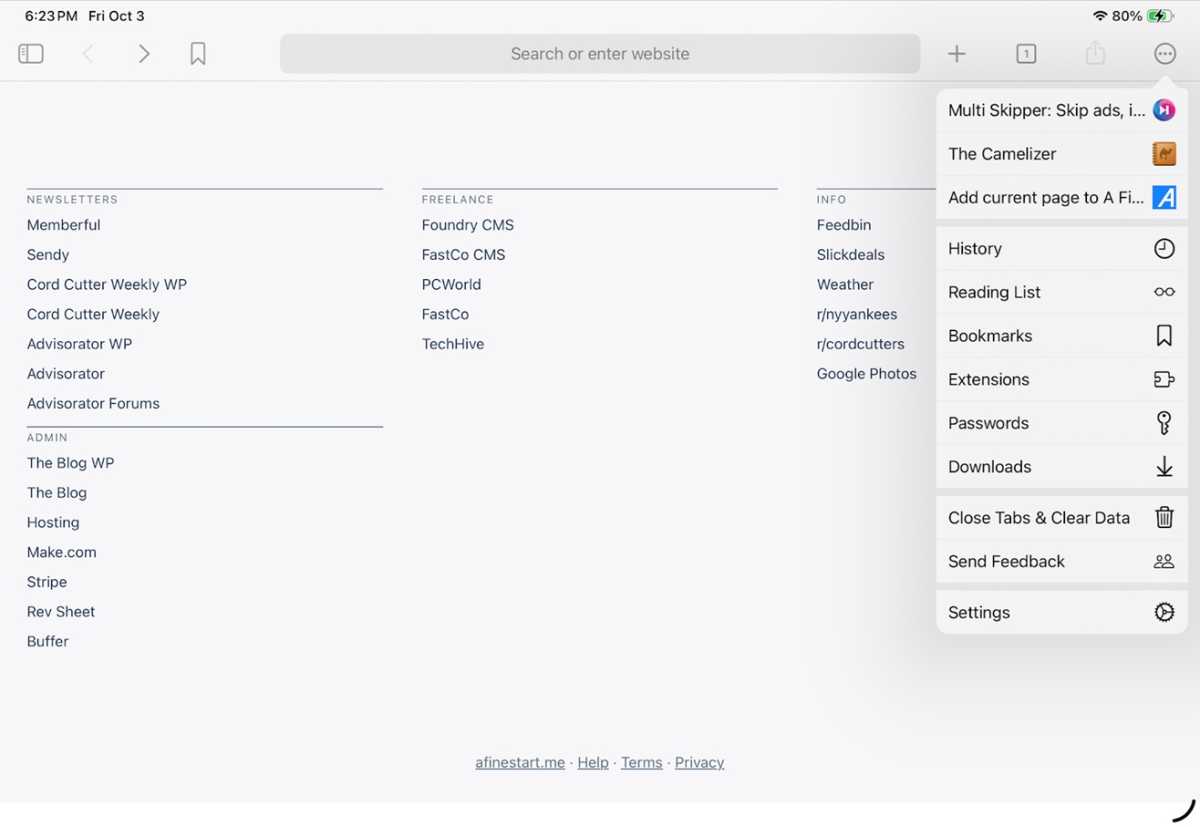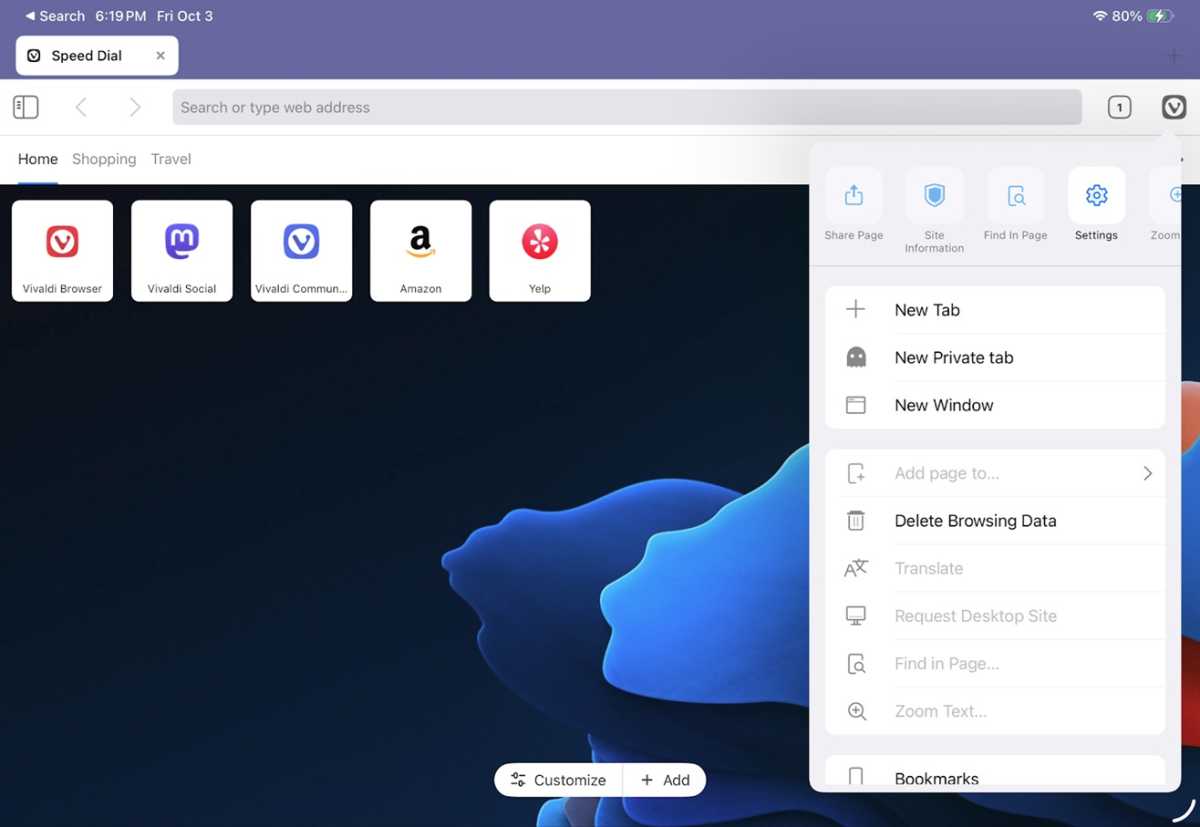If you want to try a new web browser and have at least a modicum of tech savviness, Vivaldi is what I usually recommend.
Vivaldi launched just over a decade ago with a focus squarely on power users. It offers an abundance of tab management tools, endlessly customizable keyboard shortcuts, and a seemingly endless list of settings to make the browser behave the way you want it to.
Just as importantly, Vivaldi is the rare tech tool that feels like it’s entirely on your side. It doesn’t collect your browsing data, it has an easy-to-read privacy policy, and it never tries to push you into weird cryptocurrency schemes or VPN subscriptions. The company is employee-owned and doesn’t have to jump on new fads just to satisfy investors.
But as someone who’s been using Vivaldi since the beginning, I’ve also grown frustrated with the browser. In some ways, it’s less powerful than other browsers that don’t explicitly cater to power users, and it’s missing some features that would be well within its mission to offer.
While I always find myself back with Vivaldi, the following improvements would discourage me from considering jumping ship.
Commit to supporting uBlock Origin

Michael Crider / Foundry
uBlock Origin is a great ad blocker and one that’s wildly popular among tech enthusiasts, but Chromium-based browsers like Vivaldi won’t support it forever without intervention. That’s because Google is moving to a new extension platform called Manifest V3 and gradually hindering users from installing uBlock Origin (and other Manifest V2 extensions) from its Chrome Web Store, which Vivaldi relies on.
Vivaldi has made it clear that it has no plans to keep supporting uBlock Origin. In a June 2024 blog post, the company supported Google’s move to Manifest V3 and pointed to its built-in ad-and-tracking-blocker as a viable alternative to third-party options. “Here at Vivaldi, it’s always been our policy to build the most important functionality into the browser, so you don’t have to trust an unknown third party and worry that it’s in danger of going away,” the company wrote.
Sorry, but that’s a cop-out. Vivaldi’s built-in blocking tools are less effective for privacy than other browsers and they’re less customizable than uBlock Origin. Besides, other browsers such as Brave and Opera have found ways to keep making uBlock Origin available. (Ironically, Vivaldi founder Jon von Tetzchner was one of Opera’s co-founders, and started Vivaldi in 2015 because he was fed up with how his old company had watered down the product.)
A browser that prides itself on letting users craft their own experiences shouldn’t be deciding which ad-blocking tools those people can use. It should be helping them use whichever ones they want.
Sync the entire experience across devices

Jared Newman / Foundry
Like most other browsers, Vivaldi offers a Sync feature for accessing your bookmarks, history, and open tabs across all devices. What’s missing, though, is a way to sync your full Vivaldi setup so you get the same exact experience on any and every machine.
For example, Vivaldi has a useful tab management feature called “Workspaces,” which lets you toggle between different groups of pages in your tab bar. This is helpful if you’re juggling a few projects and want separate lists of tabs for each. As it stands, there’s no way to access the same Workspaces across devices. You can use Vivaldi’s synced tabs view to see what’s in your Workspaces and open each page manually, but you can’t set up a group of tabs that’s instantly available everywhere.
Vivaldi’s Web Panels don’t sync across devices either. Web Panels are a great Vivaldi feature, letting you quickly glance at favorite sites through a slide-out sidebar view, but setting them up takes a lot of time and effort. When you move to another device, you have to do it all over again. Vivaldi doesn’t even sync themes across devices, so the browser may look entirely different when you move from one device to another.
Surely I’m not the only one who uses Vivaldi on more than one PC? Having my entire setup and all my tab collections synced across devices would be immensely valuable—possibly enough to warrant paying for—but Vivaldi doesn’t offer anything close to that right now.
Bring extensions to the mobile app

Jared Newman / Foundry
Extensions are an essential browser tool for power users, allowing you to add new features, alter website behavior, and get quicker access to important info. On the desktop, I use extensions to replace the standard new tab page, check Amazon price histories, generate private email aliases, and more.
But none of those customizations are available in Vivaldi’s mobile app, which doesn’t support extensions at all. To make things worse, a bunch of Vivaldi’s rivals already offer extensions on mobile:
- Orion for iOS lets users install extensions from either the Chrome Web Store or Firefox Add-ons.
- Firefox offers thousands of extensions for its Android app.
- Microsoft Edge offers extensions for its Android app as well.
Mobile extension support should be a slam dunk for Vivaldi. Instead, it’s another area where other browsers that aren’t as focused on power users are somehow doing a better job.
Build a best-in-class tablet app

Jared Newman / Foundry
I’ve been replacing some of my laptop use with an iPad Pro lately, and one thing I miss is having access to the full Vivaldi experience.
Vivaldi’s tablet app is nothing like the desktop version. There’s no vertical tab support, no Web Panels, no Workspaces, no recently closed tabs view, no user-made themes, no custom keyboard shortcuts, no active tab search… I could go on and on.
Most of these omissions apply to Vivaldi’s phone app as well, but I’d charitably expect a more lightweight browser on a smaller screen like that. On a larger tablet, the user experience should come a lot closer to what Vivaldi is like on desktop, otherwise there’s not much point in using it. For now, I’ve just been using Orion’s iPad app instead, because at least it supports extensions (which, again, Vivaldi’s app doesn’t).
Do more and do it better, Vivaldi
Vivaldi recently made a big to-do about how it’s not building AI into its browser, arguing that AI features sap the web of joy and users of curiosity. I don’t have a problem with Vivaldi taking that stance, but it doesn’t inherently help the browser get any better.
Instead of defining itself by what it’s not, Vivaldi should take a stand on what it is and what it’s actually trying to be. To me, that means building more ways to customize and control the browser experience for people who deeply care about such things.
Further reading: I got sick of Chrome’s BS and switched to Vivaldi
This articles is written by : Fady Askharoun Samy Askharoun
All Rights Reserved to Amznusa www.amznusa.com
Why Amznusa?
AMZNUSA is a dynamic website that focuses on three primary categories: Technology, e-commerce and cryptocurrency news. It provides users with the latest updates and insights into online retail trends and the rapidly evolving world of digital currencies, helping visitors stay informed about both markets.
